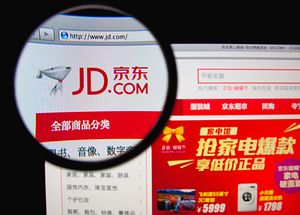China’s online shopping sales weighed in at 161 trillion RMB ($176.1 billion) in the first half of 2014. Indeed, the industry is growing rapidly: online retail sales account for close to 10 percent of all retail sales in China. This is higher than the ratio of online to brick-and-mortar retail sales in many Western nations. Online shopping has not been around in China for very long, but because of its rapid growth, many observers believe there is considerable scope for expansion in China’s internet retail sales industry.
Currently, Alibaba is the largest online B2C and C2C shopping site in China. Alibaba’s B2C website, TMall, contains virtual stores set up by third party vendors, while the C2C site, Taobao, allows shoppers to purchase new or used goods from other sellers. Other popular sites include JD.com, Yihaodian.com, Suning.com, and Paipai.com. Alipay has become the most commonly used payment platform for online purchases. C2C sales are the most popular types of online sales in China, accounting for 70 percent of internet transactions.
New customer spending has arisen both in larger cities and in smaller cities that have less access to brand-name goods, while many of the transactions occur within particular regions rather than across regions. This new consumer spending has contributed to an increase in consumption desired by the Chinese leadership as it changes China’s economic model. Analysts see huge potential for internet sales expansion, particularly since online shopping sites require less startup capital and overhead than brick-and-mortar shops do. Foreign firms are among those attempting to break into the competitive and price-sensitive industry.
The market for foreign goods sold over the internet is considered to be potentially vast. Chinese shoppers are attracted to foreign brands for a variety of reasons: better quality, product safety, lack of domestic availability, and lower prices. Recently, Topshop and Miss Selfridge announced that they would be launch online shopping sites in China. Some foreign brands, such as Uniqlo, have chosen to list themselves as storefronts on online mall websites. U.S.-based e-tailer Amazon is attempting to enhance its logistics performance and expand markets by opening a base in Shanghai’s Free Trade Zone. This will allow it to more easily import goods, to facilitate payments, and to improve shipping processes.
However, two major barriers to rapid expansion of online sales exist. One of the problems is the presence of counterfeit goods. Recently, online retailers Jumei, JD.com, and Amazon.com were forced to delist fake beauty products sold through a third party on their websites. Because of this issue, luxury brands have faced difficulty in increasing sales online, and some online luxury shops have even gone out of business. Websites have attempted to combat this problem through several channels. Sellers are required to post their personal information; when this is unavailable, trademark infringement can be pursued online via an inquiry through Internet Service Providers. Mediation and litigation can be pursued, but they are time consuming and costly.
The second major barrier to rapid expansion of internet sales is the presence of low profit margins. Profits continue to be scarce, and e-tailers, including Yihaodian and Toto, admit they are in the red. Alibaba’s profits stem not from sales but from advertising revenue. Worse, China’s State Administration of Taxation may impose a tax on online sales in the near future. There continues to be debate over whether small and midsize sellers should be taxed at a rate equal to that of large sellers, and how to tax small retailers that are often unregistered. A tax on online sales would further reduce the potential for profits in the fledgling industry and may result in a less attractive industry for foreign and domestic e-tailing sites alike.
China’s online shopping sector is still nascent and has significant scope to grow. If appropriate institutions are put into place that increase trust between buyers and sellers, enhance profits among sellers, and continue to attract new sales, the industry may be a surprise performer in China’s push to expand consumer spending.

































